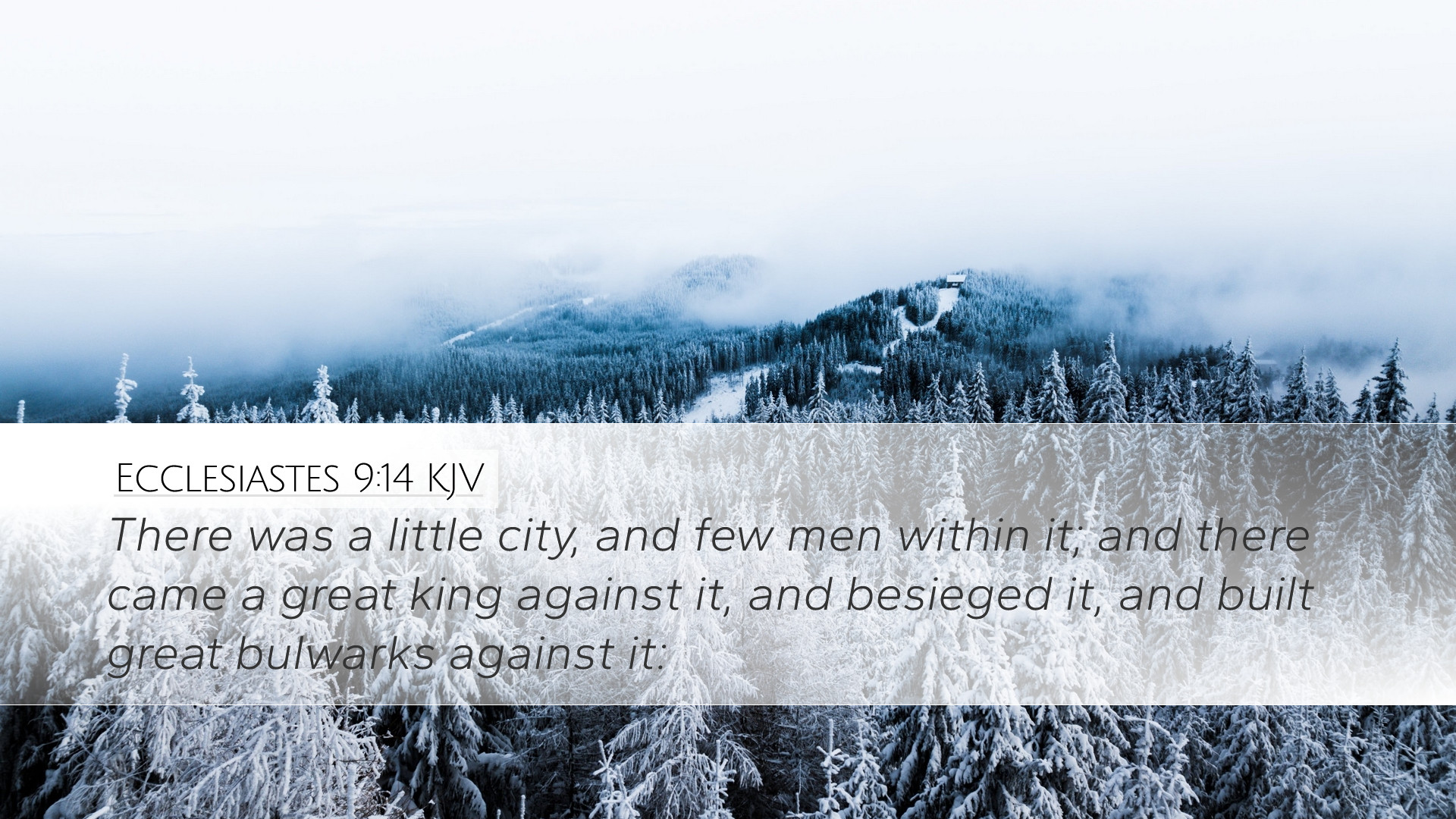Commentary on Ecclesiastes 9:14
Verse: "There was a little city, and few men within it; and there came a great king against it, and besieged it, and built great bulwarks against it:" (Ecclesiastes 9:14, KJV)
Introduction
The verse of Ecclesiastes 9:14 introduces a profound parable which serves as a lens into the themes of wisdom, power, and the fleeting nature of life. This commentary synthesizes insights from notable public domain scholars, enriching our understanding of the text.
Contextual Background
This passage is situated within the broader discourse of Ecclesiastes, where the author, traditionally considered to be Solomon, grapples with the meaning of life, the significance of wisdom, and the inevitability of death. Solomon reflects on the limitations of human endeavors and the omnipresence of divine sovereignty.
Examination of Key Elements
1. The Little City
The "little city" symbolizes vulnerability and insignificance in the grand scheme of life. Scholars like Adam Clarke note that its smallness reflects humanity's fragility and limited resources against overwhelming challenges.
2. The Few Men Within It
The depiction of "few men" accentuates the theme of isolation. Matthew Henry emphasizes that this is indicative of the remnant of righteousness often found in a corrupt world, highlighting that true wisdom and strength may not always reside in numbers but in quality of character.
3. The Great King
The "great king" represents imposing, external forces — be they literal enemies, oppressive powers, or life’s formidable challenges. Albert Barnes elaborates that this king could symbolize not only earthly rulers but also the weight of sin, death, and despair that besieges humanity universally.
The Siege and Bulwarks
The siege and the construction of "great bulwarks" points toward the strategies of the powerful to exert control and dominance. Clarke observes that these bulwarks serve as a metaphor for the barriers men erect, whether psychological, spiritual, or societal, to protect themselves from adversities.
Theological Implications
- The Reality of Human Limitation: This verse illustrates the stark contrast between human vulnerability and the overwhelming power of oppositional forces. It reminds believers that success is not guaranteed solely by human effort.
- God’s Sovereignty: In the face of great adversity, God's purposes prevail. Solomon reflects the theological truth that while humanity strives, ultimately the outcome lies in divine hands.
Lessons for Life and Ministry
Pastors and theologians can draw several practical lessons from this passage:
- The Value of Wisdom: The small city, though besieged, may possess wisdom that surpasses military might. Sharing wisdom through teaching and discipleship is foundational in ministry.
- Engaging with Adversity: As the church faces societal challenges ("great kings"), it becomes imperative to take stock of resources, unite, and fortify its position through faith and community support.
- Hope Amidst Despair: Even in smallness, hope can persist. The small city can represent the church or the individual believer, who, despite feeling insignificant, can make a meaningful impact through spiritual resilience.
Conclusion
Ecclesiastes 9:14 encapsulates the essence of life's struggles and the paradox of strength found in weakness. By reflecting upon this verse, believers are encouraged to understand their place in a world besieged by challenges while resting assured in the sovereignty and wisdom of God. The narrative of the little city serves as a profound reminder to cultivate discernment, embrace faith amidst trials, and remain steadfast in hope.


